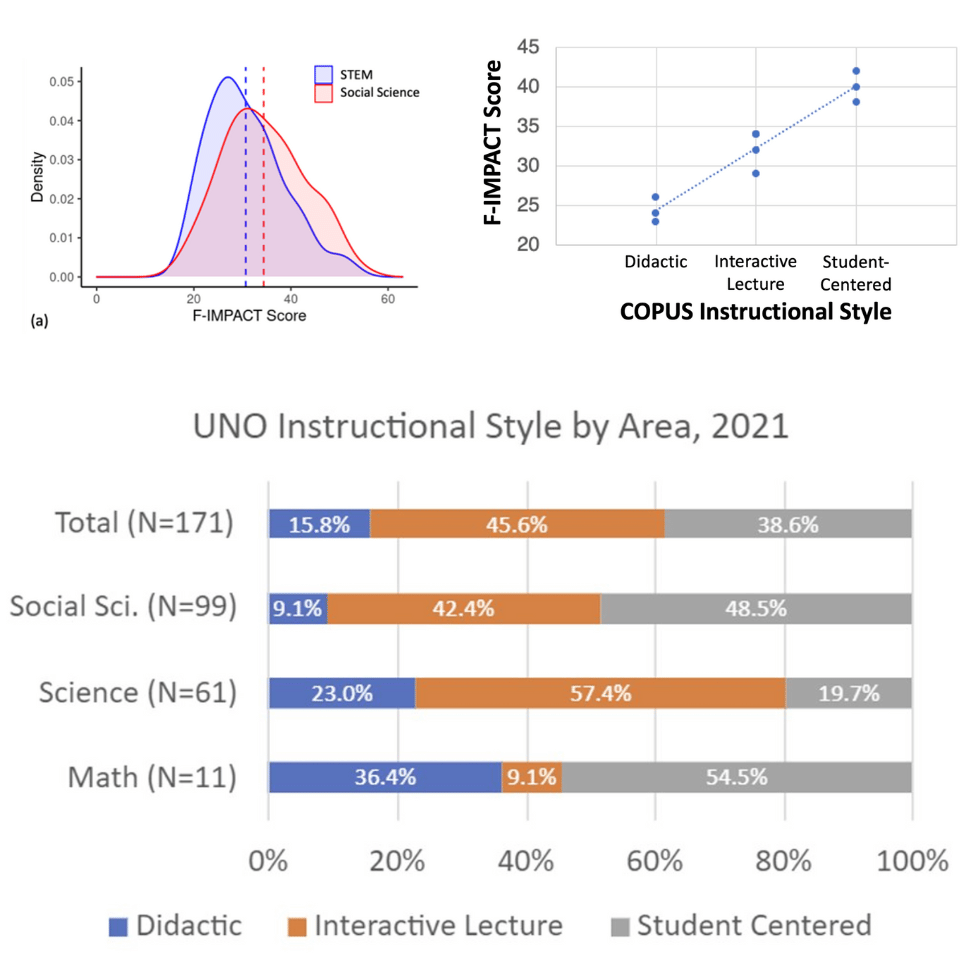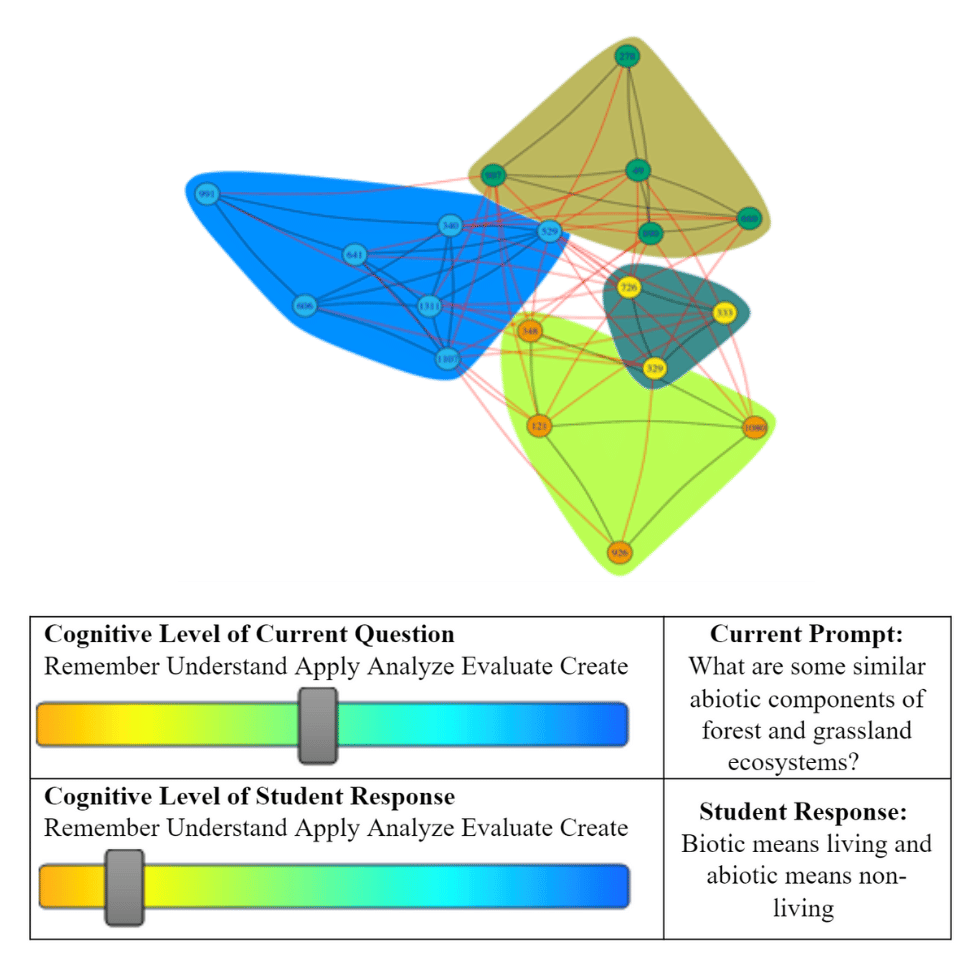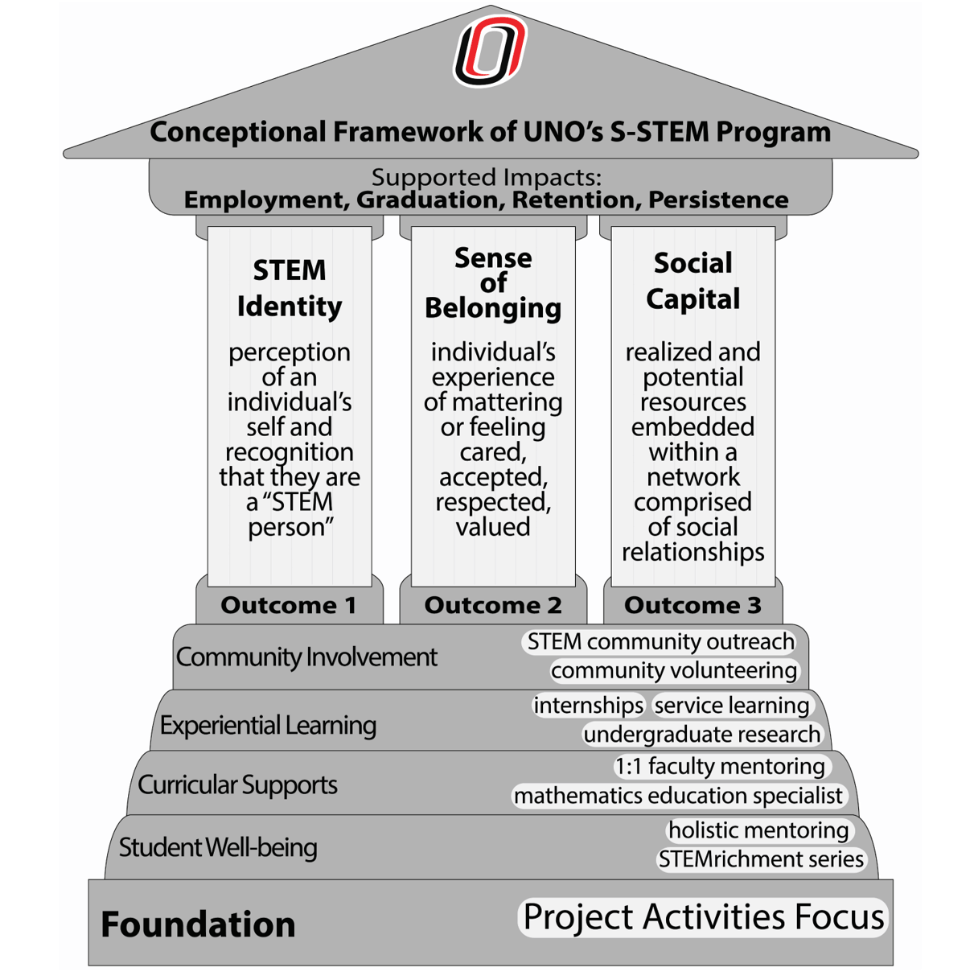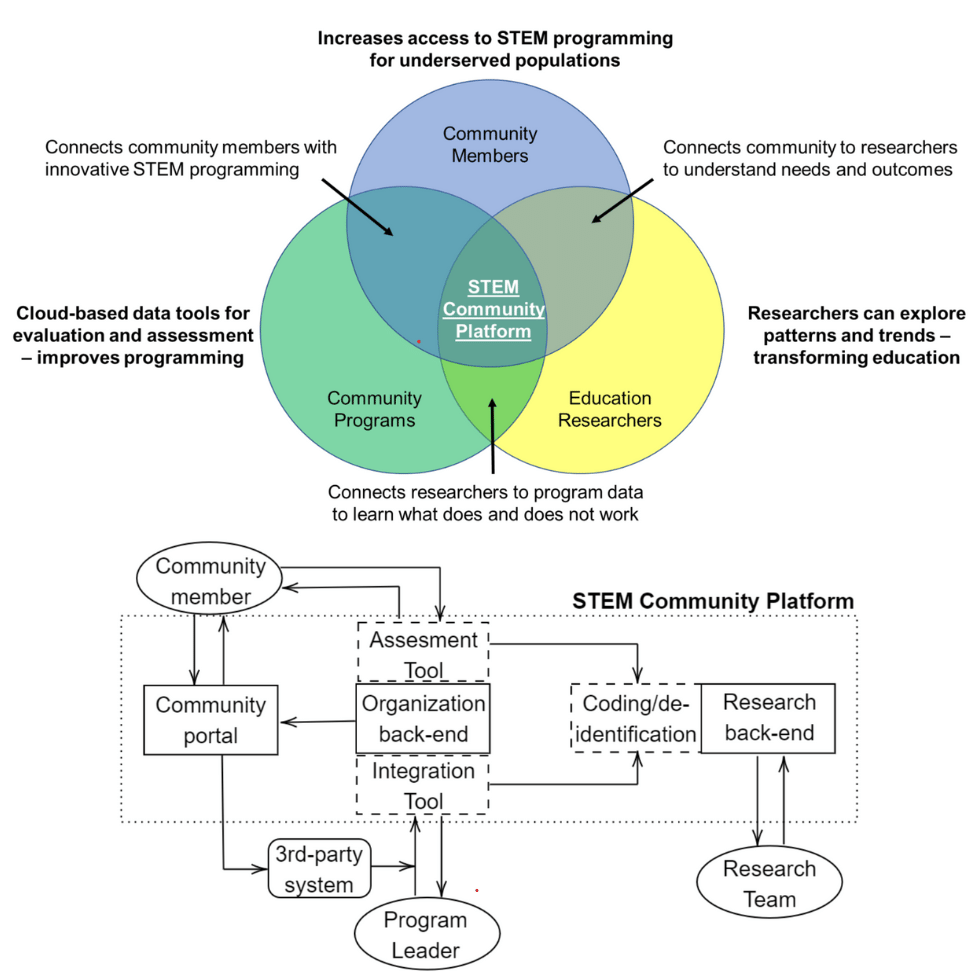Pragmatic STEM Education Research

We're developing and deploying metrics on evidence-based teaching practices to improve STEM education in higher education.

We're leveraging artificial intelligence (AI) to improve students' higher order thinking skills in online courses.

We're identifying how STEM sense of belonging, identity, and social capital can contribute to improvements in student outcomes.

How can technology be leveraged to move an entire community away from "random acts of STEM" and towards intentional workforce development.
Creating Innovations in STEM Education
The STEM TRAIL Center and affiliated faculty conduct pragmatic research across many areas of STEM education and provide infrastructure for broad impacts components of disciplinary research. The Center currently supports more than $6M in funded projects.
Selected Publications
“High impact teaching practices in higher education: understanding barriers, concerns and obstacles to adoption,” K.N. VanWyngaarden, P. Martinez Oquendo, J. Pelton, J.C. Moore, Trends High. Educ., 3(1), 105-121 (2024).
“How expert and inexpert instructors talk about teaching,” T. Reding and J.C. Moore, Education Sciences, 13(6), 591 (2023).
“Reliability and validity of an introductory physics problem-solving grading rubric,” K. Rodenhausen, J.C. Moore, Proceedings of the Physics Education Research Conference, Grand Rapids, MI, 389-394 (2022).
“Barriers to change: social network interactions not sufficient for diffusion of high-impact practices in STEM teaching,” T.L. Reding, J.C. Moore, J. Pelton, S. Edwards, Education Sciences, 8(12), 512 (2022).
“Assessing a higher education interdisciplinary leadership group using social network analysis,” T. Reding, E. Ostler, C. Cutucache, J.C. Moore, N. Grandgenett, in Gamification and Social Networks in Education, London, UK: MacroWorld Publishing (2022).
“The effect of mentoring on undergraduate mentors: A systematic review of the literature,” AS Leavitt, KL Nelson, CE Cutucache, In Frontiers in Education, vol. 6, p. 537. Frontiers, 2022.
“Replicating or franchising a STEM afterschool program model: core elements of programmatic integrity,” Stevenson N, Sommers AS, Grandgenett N, Tapprich W, McQuillan J, Phillips M, Jensen R, Cutucache C. International Journal of STEM Education. 2022 Dec;9(1):1-7.
"A multiple case study to understand how students experience science and engineering practices." Schaben, Chris, Justin Andersson, and Christine Cutucache. In Frontiers in Education, vol. 7, p. 932. Frontiers, 2022.
"Insight of supporting the learning of a challenging content for special education preservice teachers with learning analytics." Sointu, Erkko, Laura Hirsto, Sannsa Väisänen, Christine Cutucache, and Teemu Valtonen. In EdMedia+ Innovate Learning, pp. 861-869. Association for the Advancement of Computing in Education (AACE), 2022.
"Lived Experiences of Former STEM Undergraduate Mentors of an Afterschool Mentoring Program: An Interpretative Phenomenological Analysis." Oquendo, Pamela Martínez, Kristin N. VanWyngaarden, and Christine E. Cutucache, Qualitative Report 27, no. 10 (2022).
"Why COMMIT? Stories from Regional Math Faculty Leaders Engaged in Communities of Practice Centered Around Inquiry." Jakopovic, Paula, and Kelly Gomez Johnson. In 2022 Virtual Joint Mathematics Meetings (JMM 2022). AMS, 2022.
"Assessing a higher education interdisciplinary leadership group using social network analysis," Evans Reding, T., Cutucache, C., Ostler, E., Moore, C. (2021). In U. Bakan & S. Berkeley (ed.), Gamification and Social Networks in Education. https://doi.org/ 10.15340/978-625-00-0106-6_11
“There is more than multiple choice: crowd-sourced assessment tips for online, hybrid, and face-to-face environments." Drew, J.C., Grandgenett, N., Dinsdale, E., Vázquez Quiñones, L.E., Galindo, S., Morgan, W.R., Pauley, M., Rosenwald, A., Triplett, E.W., Tapprich, W., Kleinschmit, A.J. (2021). J Microbiol Biol Educ 2:e00205-21. https:// doi.org/10.1128/jmbe.00205-21.
"The COMmunities for Mathematics Inquiry In Teaching (COMMIT) Network." Gantner, Ryan and Gomez Johnson, Kelly and Jakopovic, Paula and Ksir, Amy E and Rault, Patrick X. (2020). Focus. 40 (6) 25-27.
"Investigating Individual and Collective Value within a Network of Communities of Practice." Jakopovic, P., Gomez Johnson, K., & White, N. (2021). Conference Proceedings for the 24th Annual Conference of the Special Interest Group of the Mathematical Association of America on Research in Undergraduate Mathematics Education (SIGMAA on RUME).
"Assessing a Higher Education Interdisciplinary Leadership Group Using Social Network Analysis." Reding, T.E., Cutucache, C., Moore, C. (2021). In: Bakan U. & Berkeley S. (eds) Gamification and Social Networks in Education (pp. 229-253). MacroWorld Pub.
"CURE Disrupted! Takeaways from a CURE without a wet-lab experience." Sommers AS, Miller A, Gift A, Richter-Egger D, Darr J, Cutucache CE. 2021. Journal of Chemical Education.
"A Composite Textual Phenomenological Approach to CUREs versus Traditional Laboratory Experiences." Sommers AS, Richter-Egger D, Cutucache CE. 2021. The Qualitative Report. 26(2), 507-524.